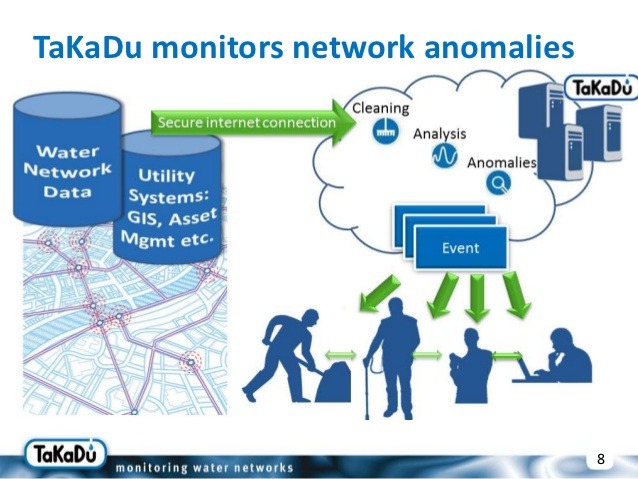In this post we look at two more companies bringing
efficiency to the water industry.
AI for Water
Treatment
Pluto AI, Inc. likes is a self-styled ‘problem solver.’ The company’s engineers have developed an
intelligent platform for water, wastewater and industrial treatment
plants. The platform uses artificial
intelligence algorithms to analyze data from plant computer systems. It is more than just data from water meters,
there are also event logs and SCADA (supervisory control and data
acquisition). Pluto’s system could be
characterized as deep machine learning.
Platform users can see all of the plants assets and receive
recommendations generated by the system algorithms. Pluto is currently looking for beta partners
to test their intelligent platform.
In early 2017,
Pluto AI raised $2.1 million from a group of venture capital firms, including
Refactor Capital, Unshackled Ventures, Comet Labs and Fall Line Capital. If the company is successful in finding beta
partners, more likely than not Pluto will need more capital to move on to the
next steps of commercializing and marketing it product.
Big Water Data
There is
competition for Pluto AI in the water market in particular. Based in Israel, TaKaDu is a software
developer that wants to take the water industry into ‘the cloud.’ TaKaDu has put together a cloud-based service
for water utilities to detect, analyze and manage water leaks, burst pipes or
other system issues. Plenty of other
systems do the same, but TaKaDu goes one step further to help utilities
prioritize the response for the most savings and revenue. The company claims its system can reduce
water losses by as much as 30% per year and average repair cycles by 60%. Unitywater just renewed its service contract
for another three years beginning August 2017.

There might be
something to TaKaDu’s boasts. It is has
customers in several continents.
TaKaDu’s corporate website features several customers that attribute
their successes to TaKaDu. For example,
Unitywater in Queensland, Australia credits the TaKaDu solution with helping to
stem water losses by identifying leaks.
After a 12-month trial Unitywater deployed the system
network wide in July 2014, not only for leaks, but for other types of failures
such as telemetry and meter malfunctions.
TaKaDu has caught the attention of some big names in water, including
the Veolia Group. The TaKaDu system has
been deployed since October 2016, at Apa Nova Bucharest, Romania’s
largest water utility and a member of the Veolia Group.
TaKaDu stands
out among the other early stage innovators, but not necessarily for its water
system solutions. The company has raised
more money than most - $13.9 million and counting. TaKaDu appears to have advanced to a later
stage of market penetration across multiple continents. That requires an extra round or two to
support sophisticated marketing strategies and multiple sales teams. Venture capital firms with some
sophistication of their own signed on the for the most recent financing round
in October 2013, including Emerald Technology Ventures, ABB Technology Ventures,
Giza Venture Capital and Gemini Israel Ventures. Representatives of all four firms have been
given seats on TaKaDu’s board of directors.
With the considerable influence that board membership offers, these
venture firms will most likely be looking for the next good step up in
valuation and a chance to harvest returns.
This might mean an initial public offering of common stock or sale to a
larger public company. Either way
minority investors can ultimately get involved, even if only indirectly.
Neither the author of the Small Cap Strategist web
log, Crystal Equity Research nor its affiliates have a beneficial interest in
the companies mentioned herein.

No comments:
Post a Comment